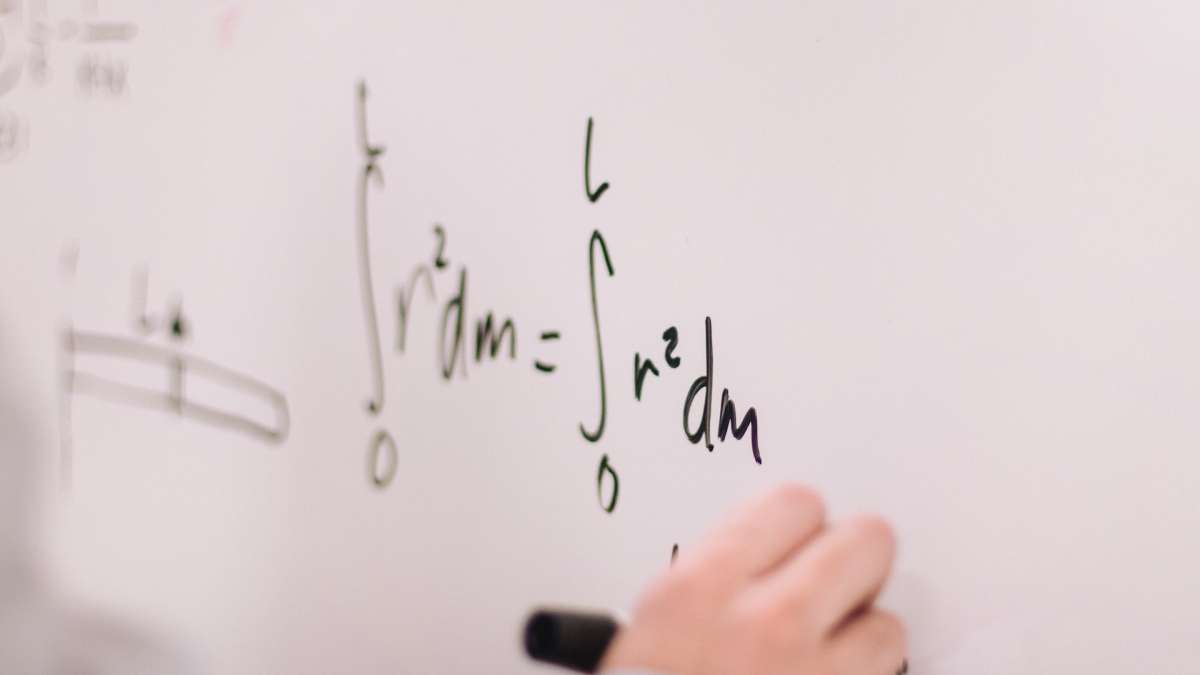For every person who can easily comprehend high-level physics concepts like “diffraction-limited molecular cluster quantification with Bayesian nonparametrics,” countless others are baffled by them.
A student video series hopes to change that.
The ASU American Physical Society Research Highlights Series features Arizona State University doctoral candidates presenting their work in a clear and concise manner, while also giving viewers a window into the research being done at ASU.
The series was inspired by “iBiology,” a YouTube channel featuring talks by the world's leading scientists.
“The original intention was to have something that would be accessible to everyone,” said Shep Bryan, a PhD student in ASU’s Department of Physics, who co-created the video series.
That means communicating scientific discoveries without using jargon or technical language.
“Primarily, we hope to establish a successful avenue of science communication that extends from the frontier of active research to any interested person, regardless of accessibility constraints or educational background,” said William Munizzi, chair of the American Physical Society chapter at ASU.
The series premiered in summer 2022 and since then, five more videos have been produced, including the most recent video on cell membranes, which was published in late March.
Showcasing studies by ASU students
The American Physical Society, a national organization with 50,000 members, works to advance and diffuse the knowledge of physics. The American Physical Society talks provide a platform for viewers to learn about cutting-edge research from the next generation of scientific leaders in ASU’s physics department.
Doctoral candidates in physics can spend years researching topics such as quantum mechanics, cosmology (the study of subjects such as the Big Bang Theory) and protein dynamics. These talks take that research out of the lab, lift it off the pages of papers and bring it into the light where it can get the exposure it deserves.
“We want to afford graduate students and other early-career scientists the opportunity to showcase their dedicated research efforts and notable discoveries to an audience beyond their local academic circles,” said Munizzi, a PhD candidate in physics at ASU.
“I'd like to see the series become a platform to amplify research that might otherwise get overlooked and to make the scientific voice of ASU students louder than it was before the series,” said second-year PhD candidate Max Schweiger, who will become the media officer for the ASU chapter of the American Physical Society next semester.
“The research highlights series gives prospective graduate students a chance to see how we approach finding and investigating new scientific problems,” Schweiger said. “The videos can help students get an idea of the unique perspective each lab brings to the table before reaching out for research opportunities or applying for the graduate program.”
Success of the series
The talks already have a following and APS intends to feature them in an upcoming article.
Looking ahead, the team plans to create distinct sets of videos, which will target different audiences at varying education levels.
Schweiger hopes the videos inspire conversations with both the local community and beyond.
“The best thing about putting the videos online is that it gives the community the opportunity to respond,” Schweiger said. “So I'd love to see these videos become a starting point for online discussions between ASU student researchers and their colleagues around the world.”
Top photo by Jeswin Thomas via pexels.com.
More Science and technology

Cracking the code of online computer science clubs
Experts believe that involvement in college clubs and organizations increases student retention and helps learners build valuable social relationships. There are tons of such clubs on ASU's campuses…
Consortium for Science, Policy & Outcomes celebrates 25 years
For Arizona State University's Consortium for Science, Policy & Outcomes (CSPO), recognizing the past is just as important as designing the future. The consortium marked 25 years in Washington, D…

Hacking satellites to fix our oceans and shoot for the stars
By Preesha KumarFrom memory foam mattresses to the camera and GPS navigation on our phones, technology that was developed for space applications enhances our everyday lives on Earth. In fact, Chris…
